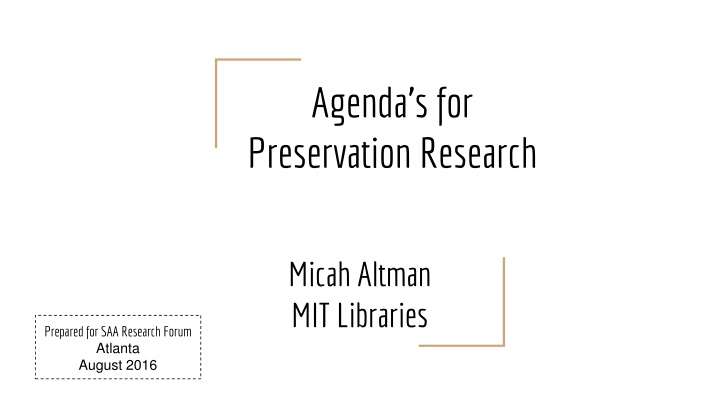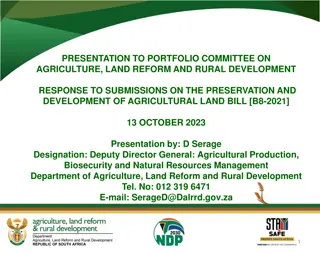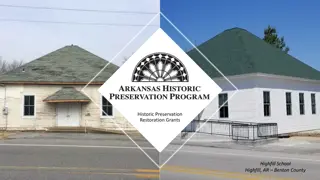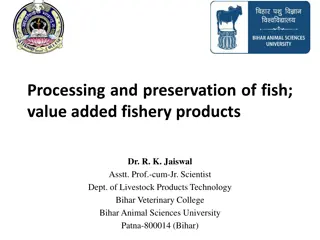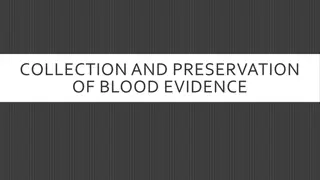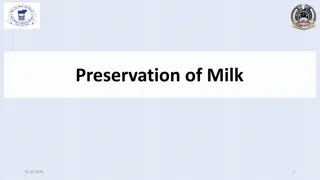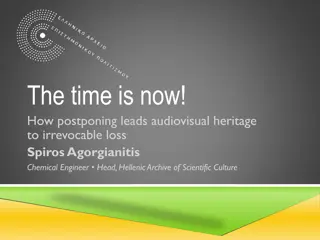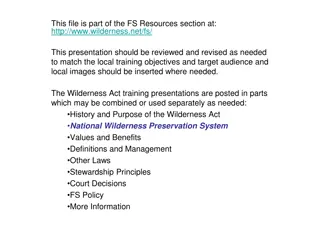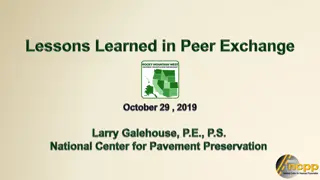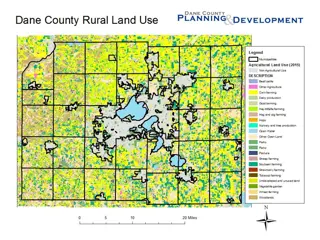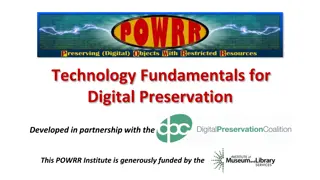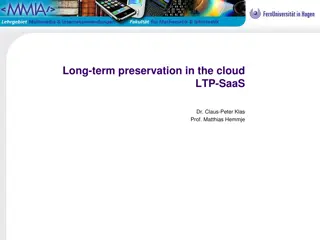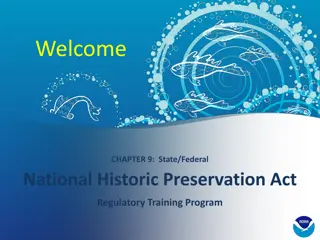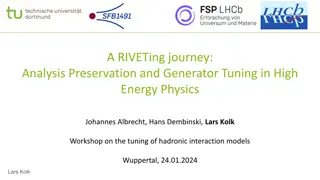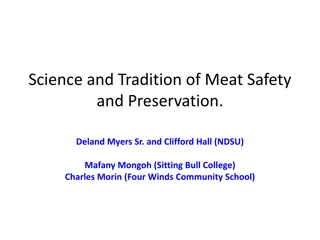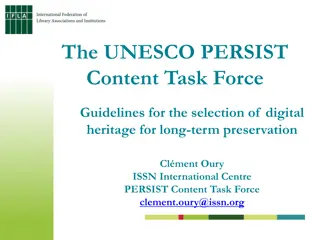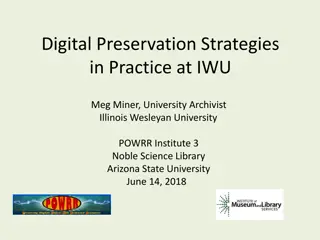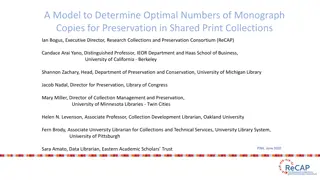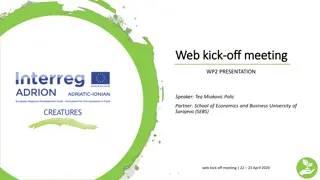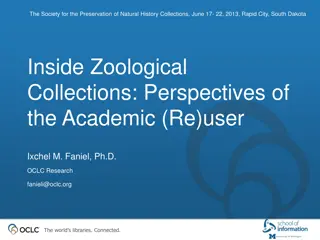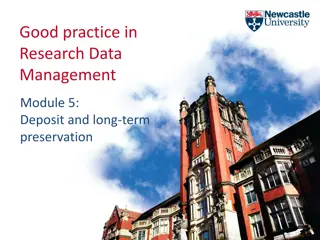Preservation Research Agenda & Tools
In this compilation, there are various agendas presented for preservation research, covering themes like content planning, collection management, trust, archival ethics, and more. The tools section discusses digital libraries, data grids, format characterization, and preservation workflows. Additionally, it outlines current agendas and emphasizes the need for systematic evidence-building in digital preservation research, multi-institutional collaboration, and addressing difficult challenges and wicked problems in the field.
Download Presentation

Please find below an Image/Link to download the presentation.
The content on the website is provided AS IS for your information and personal use only. It may not be sold, licensed, or shared on other websites without obtaining consent from the author.If you encounter any issues during the download, it is possible that the publisher has removed the file from their server.
You are allowed to download the files provided on this website for personal or commercial use, subject to the condition that they are used lawfully. All files are the property of their respective owners.
The content on the website is provided AS IS for your information and personal use only. It may not be sold, licensed, or shared on other websites without obtaining consent from the author.
E N D
Presentation Transcript
Agendas for Preservation Research Micah Altman MIT Libraries Prepared for SAA Research Forum Atlanta August 2016
Impressionistic Themes 2007 fostering & engaging research 2008 content planning; formats; repositories; user studies 2009 collection management; community practice archival practice; distributed preservation; collection management 2010 2011 trust 2012 use and control 2013 archival ethics 2014 metadata, culture & society, modeling practice, education 2015 collections, discovery, description 3
Tools 2007 digital libraries; data grids; XML/xsl ... 2008 data repositories; data grids; format characterization 2009 open source accessioning tools; data grids; Preservation networks; trusted digital repositories (tdr); preservation workflows 2010 2011 cloud storage; format characterization; data grid, format characterization 2012 Archive workflow tools, linked data,tdr, digital forensics; 2013 certification, linked data, tdr; forensics; workflow; format registry Workflow tools, linked data; forensics; cloud storage; semantic technologies; format registry; information visualization, virtual computing environments 2014 4 2015 Workflow tools, linked data, TDR; semantic technologies
An Agenda for Digital Preservation Research Build the evidence base systematically -- experiments, testbeds, probability samples Better integrate research & practice Stewardship at scale Multi-institutional collaboration Methods for big data and collections Value and portfolio models http://ndsa.org/national-agenda/ Applied research 6 Cost models at scale
Difficult Problems & Wicked Challenges Difficult Challenges: Competition from Alternative Avenues Rethinking Roles and Skills Personalizing Interactions Wicked Challenges: http://www.nmc.org/publication/nmc-horizon- report-2015-library-edition/ Embracing the Need for Radical Change Managing Knowledge Obsolescence 7
Changing Economics of Long-Term Access Digitization dramatically reduces marginal costs of: Access, Replication, Computation, Alteration no single organization can steward all the Information upon which it relies Altman M, Avery M. Information wants someone else to pay for it: laws of information economics and scholarly publishing. Information Services and Use . 2015;35(1-2):57-70. http://content.iospress.com/articles/information- services-and-use/isu775 Applied research for information commons: Reputation creation and management Organizational coordination and monitoring Portfolio management and models 9 Risk models and diversification
Supporting Diversity in the Information Architecture of Archiving Re-presentation Weinberger D. Too big to know. Basic Books. 2011. Community ontologies Morales M, Knowles EC, Bourg C. Diversity, social justice, and the future of libraries. Libraries and the Academy. 2014;14(3):439-51. Local knowledge Embodied perspective Multiple ways of discovering and understanding Accessible 10
Questions? Web: Informatics.mit.edu Email: escience@mit.edu 11
